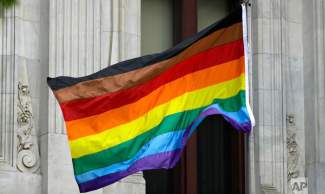While we have earned the right to marry. There is still plenty of issues facing the LGBT community.
One issue is protections for seniors. Whether one is gay or straight, they have a myriad stories of people taking care of the, While for straight seniors things have improved, especially in nursing homes, the same does not remain true for their LGBT counterparts.
In order to combat this, Gigi Nikpour, of the Philadelphia, is working to create a bill of rights for elderly LGBT adults, through the Mayor’s Commission on LGBT Affairs’ LGBTQ Elders Committee.
Nikpour, is taking inspiration from the Bay Area, where California’s governor signed the LGBT senior long-term care bill of rights into law.
The law in Philadelphia would,
strengthens protections when a care provider refuses to use a resident’s preferred name or pronoun; denies admission to a facility; transfers a resident within a facility or to another facility based on homophobic complaints from other residents; and evicts or involuntarily discharges a resident from a facility based on their sexuality, gender or HIV status.
Centers have only recently started collecting data on seniors sexuality and gender preference. Nikpour hopes that the data can be used to better meet the needs of seniors. With not a lot of data to go off of, it’s hard for them to meet the needs of the community.
LGBT think tank Movement Advancement Project released the report “Understanding Issues Facing LGBT Adults,” earlier this year. The study revealed:
- over 2.7 million American seniors who identify as gay, lesbian, bisexual and transgender
- 1 In 5 of which are of color
- A lifetime of discrimination and lack of legal support can lead to economic insecurity.
- LGBTQ adults are less likely to rely on informal support networks, which may lead to social isolation.
- A lack of access to inclusive, competent healthcare can cause poor health.
Right now there are no requirements for staff and administration dealing with LGBTQ patients. The ordinance would not just create one-off trainings and workshops but also establish certifications as well.
Next steps to pass the ordinance include working with the Office of LGBT Affairs, and getting city council members to sponsor the ordinance.
H/T: Generosity

